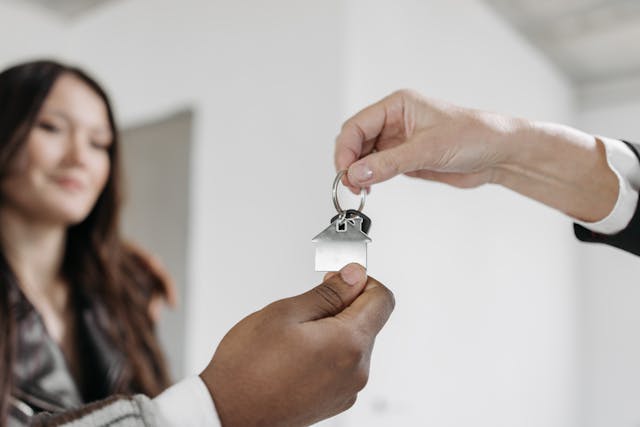Success in property management requires more than just keeping up with trends. The best operators don’t settle for reacting—they anticipate, adapt, and find opportunities others miss. Two decades of experience have taught me that staying ahead means embracing technology, refining processes, and always staying curious.
Technology as the Foundation
Tech isn’t just for streamlining tasks—it’s a competitive edge. The right software can make a portfolio of 500 units as manageable as 50. Platforms that integrate leasing, maintenance, and communication give you better control and fewer headaches.
Digital dashboards are a must. A centralized hub where you can see everything in real time helps you make faster decisions. Maintenance requests, lease expirations, and rent collection metrics should all be just a click away.
Automation is the silent partner you need. Rent reminders, late fee calculations, and even some tenant communication can be automated, saving you hours every week. While automation helps reduce manual errors, it also frees up your time for higher-value tasks like improving tenant retention strategies.
Communication That Stands Out
Few things impact tenant satisfaction more than communication. Whether it’s replying to emails promptly or sending timely updates, good communication sets you apart. Technology helps here too. Tenant portals make it easier for residents to pay rent, request maintenance, or track their lease details.

Avoid generic messages. Tenants appreciate a personal touch, even in automated updates. Address them by name, and tailor notifications when possible. Personalized service builds trust, and trust keeps vacancy rates low.
Don’t overlook your team’s communication either. A property manager with clear internal systems operates more efficiently. Use apps like Slack or Microsoft Teams for quick updates and task tracking. Miscommunication between team members can lead to costly mistakes, like missed maintenance requests or late filings for compliance documents.
Data Is the Ultimate Weapon
Every property manager has data—few know how to use it effectively. Track metrics beyond just occupancy rates. Focus on turnover costs, average lease duration, and time-to-fill for vacancies. This information helps you spot trends and adjust your strategies to maximize revenue.
Turn to predictive analytics if your portfolio is large enough. These tools can estimate future maintenance needs, rental pricing adjustments, and even tenant satisfaction risks. Instead of always playing defense, you can plan ahead and solve problems before they arise.
Build a Maintenance Game Plan
Maintenance is the single biggest source of tenant complaints. A slow response or a botched repair can undo months of goodwill. Build a system that prioritizes speed and quality.
Online maintenance request systems are no longer optional. Tenants should be able to upload photos, describe the issue, and track progress without calling or emailing. Assign tasks to contractors immediately and ensure they update the system once the job is completed.
Routine inspections keep you ahead of potential disasters. Roof leaks, plumbing issues, or electrical hazards don’t wait for a convenient time to escalate. Create a checklist and stick to a schedule. A small expense for preventive maintenance can save thousands in emergency repairs later.
Market Smarter, Not Harder
A full property is a profitable property. But finding tenants doesn’t have to mean throwing money at ads and hoping for the best. Targeted marketing gets you better results at lower costs.
Social media is an untapped goldmine for many property managers. Local Facebook groups, Instagram ads showcasing your units, and even TikTok videos of your properties can attract the right audience. Highlight unique features—proximity to schools, trendy amenities, or standout customer service.
Review platforms like Yelp and Google Reviews are critical too. Encourage satisfied tenants to leave reviews. Prospective renters trust these more than anything you put in an ad. Respond to feedback—good and bad. It shows you care about the experience you offer.
Focus on Tenant Retention
The cost of finding a new tenant often exceeds the cost of keeping an existing one happy. Retention should always be a priority. Incentives like early renewal discounts or small upgrades can work wonders.

Regular check-ins with tenants show you’re invested in their comfort. A quick email or call asking how things are going can reveal small problems before they snowball. Fixing a leaky faucet promptly could mean the difference between a happy tenant and a vacancy.
Consider community-building activities. Hosting events or even small gestures, like welcome packages for new tenants, fosters loyalty. Happy tenants tend to stay longer and are more likely to refer friends.
Never Stop Learning
The best property managers treat every challenge as a chance to learn. Laws change, tenant expectations shift, and the market fluctuates. Staying ahead means being open to new ideas and constantly improving.
Attend industry conferences and webinars. These aren’t just for networking—they’re where you pick up the strategies your competition will adopt six months later. Follow property management blogs, join online forums, and keep a close eye on industry news.
Don’t forget to train your team. A property management business is only as strong as its weakest link. Whether it’s legal compliance, communication skills, or tech training, investing in your staff pays off in smoother operations and better results.
Adapt to Economic Shifts
Economic changes can hit property management hard. Renters might downsize, and owners could tighten their budgets. Prepare for these shifts by diversifying your offerings.
If luxury units sit empty, adjust pricing or offer short-term leases to attract different tenants. For lower-income properties, explore programs like Section 8 to keep occupancy high. Flexibility keeps cash flow steady when the market shifts.
Monitor interest rates and economic indicators. These factors influence everything from rental demand to refinancing opportunities for your properties. Staying informed allows you to make proactive adjustments.
Keep It Human
Even in a world dominated by technology, property management is still a people business. Treat tenants, owners, and contractors as partners. Build relationships based on trust and respect. A warm smile or a quick thank-you goes further than you might think.
Every successful property manager I’ve known has one thing in common: they put people first. When you do that, the rest—occupancy, profitability, reputation—tends to fall into place.
